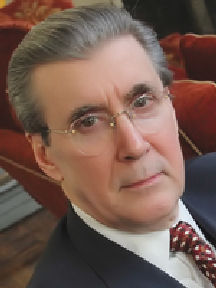For some years, I have been recommending new political books readers might choose to crack open during their summer vacations. This year, however, I am taking a slightly different approach because many interesting books slated for publication in the spring have been put off due to the coronavirus pandemic.
So, for political junkies, I recommend not only recent publications, but several books published decades ago that I took down from my library shelves and reread while confined to my home. (The out-of-print books can be purchased at abebooks.com.)
Here goes:
New Books:
“Great Society: A New History” by Amity Shlaes. In light of the recent unrest in New York and other major cities, Shlaes’s work is timely. “Great Society” describes the failed good intentions of poverty programs Lyndon Johnson signed into law in the mid-1960s.
Shlaes explains that the War on Poverty actually erased inroads made by people below the poverty level—both black and white—in the post-war boom and shackled millions of families to permanent government dependence. Shlaes’s analysis should be studied by those attempting to resurrect 1960s social welfare and policing programs.
“The Coming of Neo-Feudalism: A Warning to the Global Middle Class” by Joel Kotkin. The executive director of the Urban Reform Institute, Kotkin is in my judgment the nation’s top urbanologist.
In “The Coming of Neo-Feudalism,” Kotkin argues a new aristocracy—the ultra-rich and technocratic elites—has become a secular clergy waging war on the middle class, aka “the deplorables.”
These modern oligarchs “seek to replace the bourgeois values of self-determination, family, community, and nation with ‘progressive’ ideas about globalism, environmental sustainability, redefined gender roles and the authority of experts,” he says
As a result of the growing power of the “clerisy,” Kotkin makes a persuasive case that over time working-class folks will become more like medieval serfs, “with diminishing chances of owning significant assets or improving their lot except with government transfers.”
“Becoming George Orwell: Life and Letters, Legend and Legacy” by John Rodden. George Orwell was a remarkable political writer. The fact that he is admired by people on both the left and the right of the political spectrum confirms my claim. Orwell despised most fellow socialists who he perceived as dupes of totalitarian communists. As a critic of centralized power, he became an “unwelcome truth-teller” to leftists colleagues guilty of Newspeak. And he was also an “old-fashioned cultural conservative for whom tradition, decency, patriotism and love of nation were important.”
To understand why Orwell is relevant today, read Rodden’s fine work.
Old Books
“Huey Long: A Biography” (1969) by T. Harry Williams. This award-winning volume describes how a radical left-wing populist took over Louisiana and tried to take over the nation. Huey Long (1893-1935), as governor and U.S. senator, ruled Louisiana like a banana republic. “A deck has 52 cards,” he once said, “and in Baton Rouge, I hold all 52 of them and can shuffle and deal as I please.”
Long obtained power to call out the National Guard for any reason, created a secret police, levied taxes on advertising in anti-Long papers, transferred control of the New Orleans Police Department to the state and stripped Baton Rouge of home rule.
Reacting to critics, he proclaimed, “There is no dictatorship in Louisiana. There is a perfect democracy there, and when you have a perfect democracy, it is pretty hard to tell it from a dictatorship.”
President Roosevelt—fearing Long—moved far to the left in the Second New Deal. But it didn’t work. Long began laying the groundwork to evict FDR from the White House in 1936 by promoting a confiscatory Share-the-Wealth program.
Long’s plans, however, were snuffed out when a mild-mannered Baton Rouge physician, Dr. Carl Weiss, Jr., assassinated him outside his Baton Rouge office.
“A History of the American People” (1997) by Paul Johnson. The great British historian Paul Johnson, begins his monumental work with these words: “The creation of the United States of America is the greatest of all human adventures. No other national story holds such tremendous lessons, for the American people themselves and for the rest of mankind.”
In writing this history, which he called a labor of love, Johnson did not bow “to correct academic nostrums about nomenclature or (accept) the flyblown phylacteries of political correctness.” Johnson’s history is perfect reading for the Fourth of July weekend.



